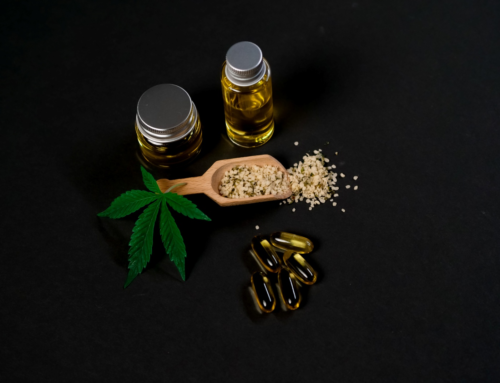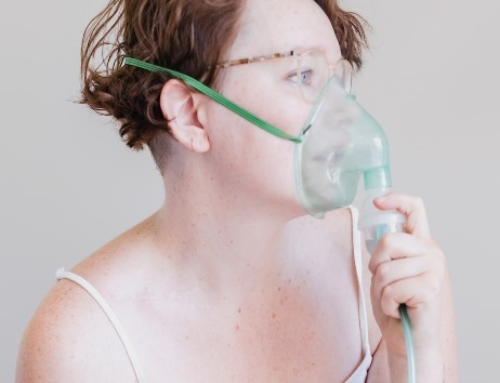Huntington's Disease and Medical Marijuana
Overview of the Huntington Disease
Huntington disease is a progressive disorder of the brain. The disease has a large impact on a person’s functional abilities and causes involuntary movements, cognitive disabilities, and emotional problems.
Causes of Huntington Disease
It is estimated that 30,000 Americans have Huntington’s disease. The disease is inherited through genes and a child born from a parent with HD has a 50 percent chance of inheriting the disease. At birth, every person inherits two copies of genes, one from each parent. The HTT gene is associated with causing the disorder. A parent with a defective HTT gene could pass it to their child.
HTT gene provides instructions to the DNA to produce a protein called Huntington. Researchers do not understand the exact purpose of this compound but it appears to have an impact in the onset of Huntington’s disease.
In very rare cases, people affected by HTT were found to have parents who did not have this disorder.
Treatments for Huntington Disease
Physicians and medical doctors have developed a number of medications to control the movement and psychological symptoms of the disease. However, while the symptoms can be controlled, Huntington’s disease does not have a cure to reverse the course of the disease.
The FDA approved tetrabenazine in 2008 for the treatment of HD. Similar antipsychotic drugs like haloperidol or clonazepam have been prescribed to improve choreic movements. The drugs are effective in controlling delusional states or emotional outbursts caused by Huntington’s.
Depression and anxiety are common symptoms of HD. Patients are prescribed fluoxetine, sertraline and other drugs to deal with these complications.
Some of these drugs have an adverse side effect to muscle contraction, which is a symptom of HD. The medication can also cause fatigue, constipation, insomnia and hyper-excitability. Finally, the drugs are also know to cause sedation and recommended to be used in moderation.
The disease is mostly inherited from a parent and people affected by it develop symptoms in mid life between the ages of 30 to 40. In some cases, it has been observed to emerge earlier.
Although there are medications available to improve the symptoms of Huntington’s disease, there is no known permanent cure.
Stages of Huntington Disease
The exact symptoms of the HD are different from one person to another but researchers have divided the disease into three separate stages.
In its early stage, the disease causes a person to experience subtle changes in movement, such as minor lack of coordination or problems in analyzing and solving problems. HD starts causing irritability, mood swings and depression. Although the affected person is still able to perform most functions correctly, they find their productivity drop in terms of physical activity and analyzing problems.
In the second stage, movement and cognition becomes more difficult and the negative effects become more pronounced. People suffering from second stage HD find it hard to swallow and their speech becomes slurred. It becomes more difficult to maintain a good posture or walk straight.
In the late stage of HD, people lose most of their body’s functionality and become dependent on others, even for basic daily activities. Choking can become a major life hazard. People suffering from late HD lose their ability to walk or speak. Memory is also affected and it becomes difficult to communicate with them, although they can still understand language and be aware of their family and friends.
The disorder is not fatal in itself but some of the complications it develops, such as choking and infections are usually the cause of death.
Symptoms of Huntington Disease
The disease mostly affects a person’s cognitive, movement and emotional capabilities and there are many signs and symptoms which can be divided into three categories
Cognitive Symptoms
Usual cognitive symptoms of HD include the following.
- Problems focusing on something being discussed or explained.
- Finding it difficult to organize even the simplest of tasks.
- Getting stuck on a single thought or behavior and inability to divert attention.
- Acting without foresight and inability to control impulses.
- Problems in learning new things and memory loss.
- Difficulty in paying attention to detail.
Movement Symptoms
- People suffering from HD go through a gradual process of losing control of their motions. Common symptoms are listed here.
- Involuntary movement and jerking.
- Stiffness or contraction in muscles that is beyond the person’s control.
- Abnormal, involuntary eye movement
- Degrading handwriting.
- Seizures and spastic movements.
- Hunched shoulder or slouched posture.
- Problems standing straight or maintaining balance while walking.
- Difficulties in swallowing or speaking.
Psychiatric Symptoms
- Damage to the brain of HD patients causes an imbalance in hormones making it stimulate differently. These changes are reflected in the following symptoms.
- Social anxiety and withdrawal.
- Unexplained and wild mood swings.
- Feelings of apathy, sadness or irritability.
- Suicidal thoughts and nihilistic behavior.
- Chronic depression
- Low self esteem
People affected by HD also go through a significant weight loss which gets worse as the disease progresses.
How Can Medical Marijuana Help Huntington's Disease
Marijuana Treatment for Symptoms of HD
Scientists from the whole world have been looking into the effects of Marijuana on Huntington’s disease. Some of the research has been positive and shows that the drug may be helpful in slowing down the progression of HD.
Studies show that endocannabinoid system in particular plays a crucial role in Huntington’s disease and its symptoms. As HD worsens and develops into later stages the CB1 receptors in the brain are reduced over time. CBD, a compound found in Marijuana attaches to these receptors and may keep them functioning longer.
Patients of HD suffer from pain, insomnia, depression and stiffness in muscles. Medical marijuana has many healing properties and helps induce a relaxing effect in patients. Marijuana helps a patient sleep better and lowers stiffness or contraction in muscles. The medical herb also improves mood and stabilizes breathing.
Research into Medical Marijuana for HD
Scientists from the whole world have been looking into the effects of Marijuana on Huntington’s disease. Some of the research has been positive and shows that the drug may be helpful in slowing down the progression of HD.
Studies show that endocannabinoid system in particular plays a crucial role in Huntington’s disease and its symptoms. As HD worsens and develops into later stages the CB1 receptors in the brain are reduced over time. CBD, a compound found in Marijuana attaches to these receptors and may keep them functioning longer.
Patients of HD suffer from pain, insomnia, depression and stiffness in muscles. Medical marijuana has many healing properties and helps induce a relaxing effect in patients. Marijuana helps a patient sleep better and lowers stiffness or contraction in muscles. The medical herb also improves mood and stabilizes breathing.
Popular Strains for HD Patients
Most of the marijuana strains used by HD patients are hybrid or high in CBD because the compound is better at giving the patients euphoria and lowering anxiety. Some of the more popular strains that are effective are listed here.
Harlequin
Harlequin is effective for a number of neurodegenerative conditions including HD, Multiple Sclerosis, and Parkinson’s. It is a sativa mix which helps patients deal with depression, anxiety and various other psychiatric problems.
Cannatonic
This hybrid strain is high in CBD which produces a relaxing, calm high which is particularly good for erratic movements and spastics muscle contractions.
Cheese
Named after its distinct aroma, this hybrid strain is quite mild and popular among HD patients. This strain is effective for patients suffering from pain, insomnia, headaches and depression. The strain is better to use at night as it is known to cause drowsiness.
Blue Dream
Blue Dream is a famous strain and used by patients for many kinds of neuropathic disorders. It is extremely effective for relaxing and treating depression, anxiety and negative thoughts. Blue dream is quite strong and can leave patients with red eyes or dry mouth. Given its effects, this strain is best for use at night.
Conclusion
The chances of acquiring HD are low for most people unless one of your parents has this disorder. People who are born with the defective gene usually develop the condition in their 30s or 40s and there is no known cure for Huntington’s.
Medical Marijuana can certainly help in dealing with the symptoms such as pain, seizures, anxiety and depression. Some research even suggests that CBD in the herb can slow down the process of deterioration, although more research is required for conclusive evidence.












Leave A Comment
You must be logged in to post a comment.